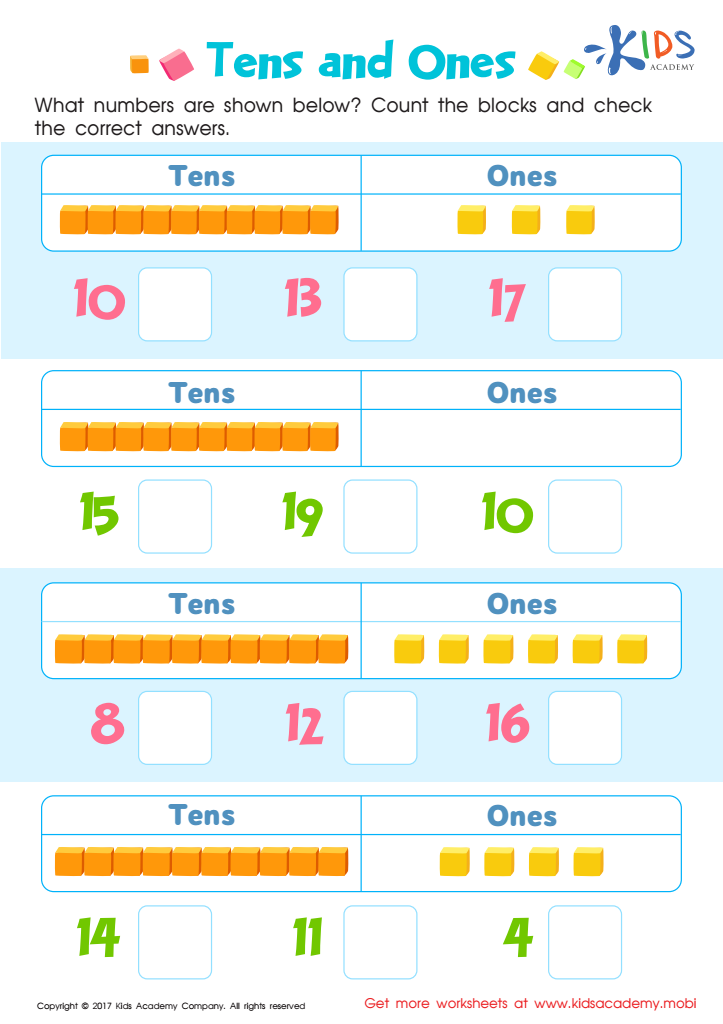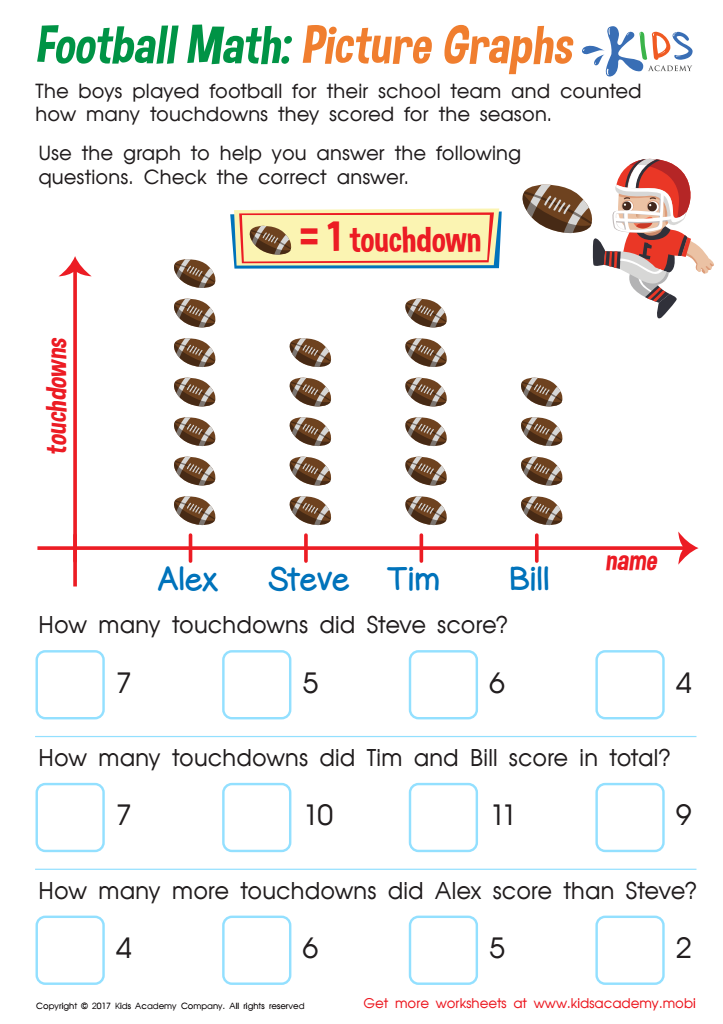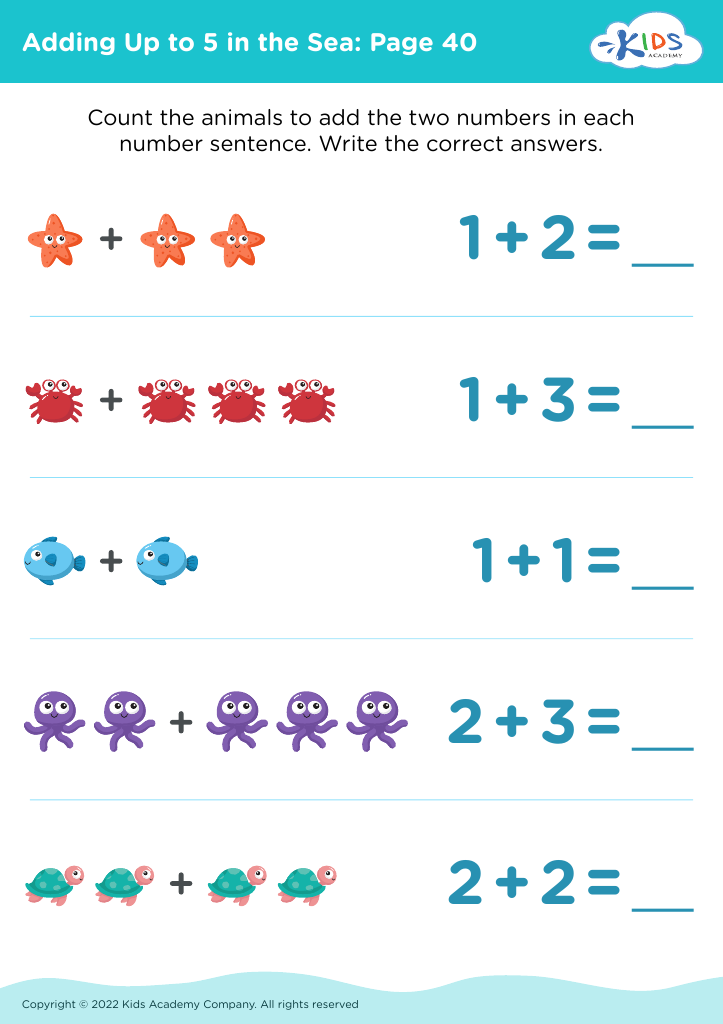Counting skills enhancement Math Worksheets for Ages 4-9
3 filtered results
-
From - To
Boost your child's counting skills with our engaging Math Worksheets tailored for ages 4-9! These printable resources are designed to help young learners grasp the fundamentals of counting through fun and interactive activities. Each worksheet features colorful illustrations and easy-to-follow exercises that make learning enjoyable. From counting objects to recognizing numbers, our worksheets provide a step-by-step approach to enhance mathematical understanding. Perfect for at-home practice or classroom use, these printable worksheets prepare children for future academic success. Explore our collection and watch your child's confidence in counting soar while developing essential math skills in a playful way!


Tens and Ones Worksheet


Football Math Worksheet
Counting skills are foundational in mathematics and play a critical role in a child’s overall cognitive development. For children ages 4-9, these skills influence not only their mathematical understanding but also critical thinking, problem-solving, and even social interactions. When parents and teachers prioritize counting skills enhancement, they set the stage for later success in more complex mathematical tasks.
During early childhood, counting helps children develop number sense—the ability to recognize quantities and understand the relationships between numbers. This knowledge is crucial as they transition to addition, subtraction, and other operations. Furthermore, engaging counting activities can strengthen fine motor skills, language development, and memory.
Teachers and parents can make math enjoyable by integrating counting into everyday activities, such as counting toys, snacks, or even steps taken. This real-world application helps children see the relevance of math in their lives. Additionally, nurturing a positive association with numbers fosters a love for learning which can influence attitudes toward math in later years.
Ultimately, strong counting skills enhance academic performance, boost confidence, and set children on a path toward lifelong math literacy. By caring about these skills, adults provide children with essential tools for future learning and success.


 Assign to My Students
Assign to My Students





.jpg)












